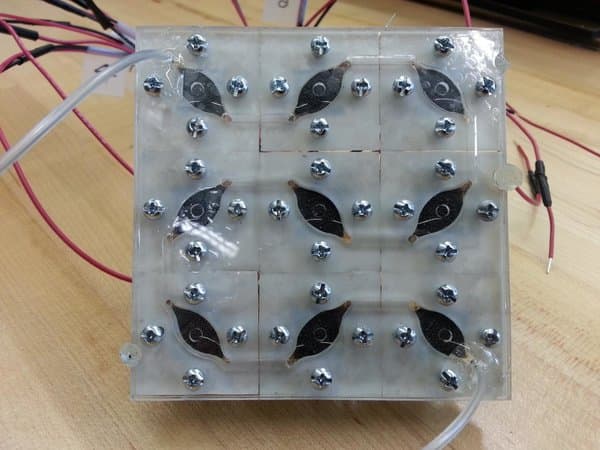Bacteria Driven Solar Panels Emerge As A Promising Source Of Renewable Energy
Most of us have heard of the Lactobacillus bacteria which helps in the preparation of Yogurt, cheese and pickles. However, with the recent advancements in solar power driven energy sources, humans have succeeded in utilising bacteria to power up solar cells. For the first time, a research team from the Binghamton University has connected nine biological-solar cells into a bio-solar panel in order to trigger maximum power generation from a small scale bio solar cell, measuring 5.59 microwatts.

bio-solar cells connected into a bio-solar panel
The latest research describes a novel way of using the well-known Cyanobacteria, as a potential source of renewable clean energy. The team engineered a 3X3 micro level bio solar panel with the help of nine-unit bio solar cells having a common microfluidic channel. The panel, with the help of Cyanobacterial photosynthesis and respiratory activities, could generate constant electricity enough in magnitude to power small, telemetry systems. Seokheun "Sean" Choi, an assistant professor and an author of the detailed scientific paper is hopeful that their research will be beneficial to small systems and emerge as a supportive power generation technology.
Although, the new idea has responded as a self-sustaining method, it cannot appear as a mainstream source just yet. Whereas a conventional solar panel of 6x12 configuration could generate 200 watts of electrical power, the new 3x3 solar cell could only generate 0.00003726 watts. This establishes the promising prospects of the method which has to be developed further, for practical implementation. The complete research report will be published in hard copy in the July issue of the Science and Actuators B: Chemical journal.
Source: #-Link-Snipped-#

bio-solar cells connected into a bio-solar panel
Although, the new idea has responded as a self-sustaining method, it cannot appear as a mainstream source just yet. Whereas a conventional solar panel of 6x12 configuration could generate 200 watts of electrical power, the new 3x3 solar cell could only generate 0.00003726 watts. This establishes the promising prospects of the method which has to be developed further, for practical implementation. The complete research report will be published in hard copy in the July issue of the Science and Actuators B: Chemical journal.
Source: #-Link-Snipped-#
0
